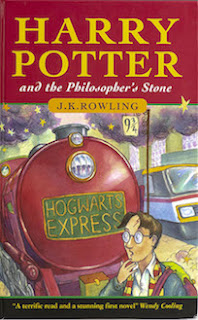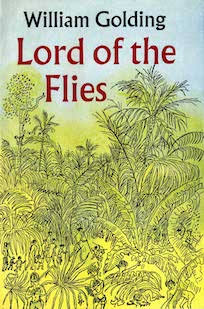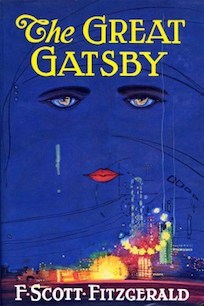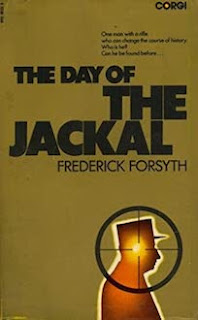Rejection is a constant part of life. And writers tend to receive more of it than most. In fact, I read somewhere recently that authors take more criticism in a year than do most ‘normal’ people in a lifetime. And while that may be an exaggeration, it frequently doesn’t feel as if that’s the case.
The great James Lee Burke’s first novel, THE LOST GET-BACK BOOGIE, was rejected 111 times before it was finally published—and then went on to be nominated for a Pulitzer Prize. All too often, rejections have more to do with whether agents and publishers think a book will sell than about whether they think it is good.
When it comes to books that have gone on to be bestsellers, there have been some very famous rejections—or rejections of the famous. Because it’s not enough to be simply turned down, but sometimes an author receives such a damning comment about their work that they could be forgiven for throwing in the towel.
It’s only later, after their books have become prize-winning bestsellers, that these rejections stop stinging and become rather funny. So, here’s some of the best of the bunch:
JK Rowling’s HARRY POTTER AND THE PHILOSOPHER’S STONE
Rowling was initially rejected 12 times. One publisher told her: “You do
Anne Frank’s THE DIARY OF A YOUNG GIRL
Anne Frank’s diary only found a publisher successfully after being featured in a newspaper article. Before this, the famous memoir was rejected repeatedly, with one publisher saying, “The girl doesn’t, it seems to me, have a special perception or feeling which would lift that book above the ‘curiosity’ level.”
William Golding’s LORD OF THE FLIES
Presumably not foreseeing Golding’s classic novel becoming a schoolroom staple, 20 publishers rejected it. One with the damning comment, “an absurd and uninteresting fantasy which was rubbish and dull.” Try writing that on a GCSE English paper.
Vladimir Nabokov’s LOLITA
Eventually published in Paris (where else?), LOLITA was rejected by Viking, Simon & Schuster, New Directions, Farrar, Straus, and Doubleday. Originally cast away as, “overwhelmingly nauseating, even to an enlightened Freudian … the whole thing is an unsure cross between hideous reality and improbable fantasy. It often becomes a wild neurotic daydream … I recommend that it be buried under a stone for a thousand years.” The American version of the novel went on to be a bestseller, selling 100,000 copies in the first three weeks.
John le Carré’s THE SPY WHO CAME IN FROM THE COLD
It’s not unusual for first novels to be rejected, but John le Carré’s went on to make TIME Magazine’s All-Time 100 Novels list. The publisher who passed on the author with the comment, “You’re welcome to le Carré – he hasn’t got any future,” presumably didn’t imagine this.
F. Scott Fitzgerald’s THE GREAT GATSBY
Fitzgerald’s principal character is arguably as famous as the novel he appears in, yet one publisher advised the author in a rejection letter, “You’d have a decent book if you’d get rid of that Gatsby character.”
Frederick Forsyth’s THE DAY OF THE JACKAL
Forsyth admits he was broke and sofa surfing when he penned this
Want to share your best/worse pieces of criticism or rejection? (And all the sweeter if your detractors have subsequently been proved wrong!)
This week’s Word of the Week is elocution, which when coupled with the word ‘lessons’ is often taken to mean the art of learning to speak without an
Any other business
If anybody is near Mickleover Library in Derby on Friday, March 4 at 7pm in the evening, I will be discussing all things writing and books with fellow author Sarah/Rhiannon Ward. Hope to see you there.
We are fast approaching the submission deadline—6pm GMT on the last working day in February—for this year’s Crime Writer’s Association Debut Dagger Awards. This is for unpublished authors, for which they need to submit the first 3000 words plus a 1500-word synopsis for a crime novel. The careers of numerous luminaries have been launched this way, including Eva Dolan, Adrian Magson, CJ Carver, James Oswald, Belinda Bauer, Alan Bradley, Sam Carrington, and our very own Michael Stanley, shortlisted for A CARRION DEATH in 2006.
























Our French publisher was the only one interested in The Da Vinci Code and won the right to publish by bidding on the basis of expecting to sell 20,000 copies. I think it was two million two hundred thousand copies later . . . . Not the same was a rejection but in the same disease family.
ReplyDeleteIf my car could reach Derby on one tank of gas, I'd be there... but with a continent and an ocean in the way, I may be an hour late. Go ahead and start without me, but save me a biscuit?
ReplyDeleteI love this kind of discussion, Zoe. Here’s my favorite: My own agent, who had represented my nonfiction and encouraged me to switch to fiction, read the beginning of City of Silver, wrote me a note that said, “Stop writing this now. It will never make it in the hardcover fiction market. It took more than eight years of being ignored or rejected my other agents. When I finally found one to represent it, it sold in four days to St.Martin’s/Minotaur, got a star from Publisher’s Weekly, a star from Library Journal, and a love letter from an Oxford professor in the Washington Post. That agent said, “If you ever want to come back to me, I’d be very glad to have you.” Hah Hah Hah Hah Hah Hah Hah!!
ReplyDeleteUK agent to me: "Two parts of the world no one wants to read about: Africa and Afghanistan."
ReplyDeleteAnd then Alexander McCall Smith and Khaled Husseini came along.
*Correction: Hosseini
ReplyDeleteAhh, sweet rejection. It means but one less fool to suffer gladly on the path to true enlightenment.
ReplyDelete